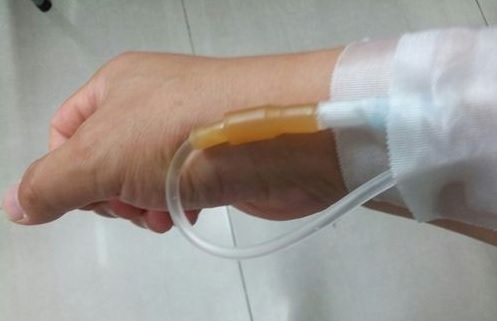Younger HIV patients more likely to skip treatment: study
By YonhapPublished : Oct. 31, 2018 - 10:53
Young HIV-infected adults tend to skip hospital visits for medical care more than elderly patients, a study said Wednesday.
A research by a team from Boramae Medical Center run by Seoul National University Hospital showed that of the adults needing regular antiretroviral therapy for their human immunodeficiency virus, 12.5 percent missed their hospital visits.
The study was conducted on 775 patients in Seoul for 2013-2014 period, with the results published in the latest issue of the Journal of Korean Medical Science.
By age group, the rate of skipped medical care was highest for the 20-34 age group of 152 people, of whom 21.7 percent missed appointments. The rate was 13.1 percent for the 35-49 age group and 7.1 percent for people aged 50 or over.

"In this study, risk factors for missed visits for HIV medical care differed according to age group, and the strongest predictors in each age group were related to socioeconomic status," the research notes. "Missed visits for HIV medical care were associated with lower educational level in subjects aged 20-34 years, low income and receipt of National Health Insurance in subjects aged 35-49 years, and receipt of National Medical Aid in subjects aged 50 years or older."
The study also notes that relative youth (20-34 years) was a strong predictor of missed visits. "Younger HIV patients might be more non-adherent to medical care due to lower perceived susceptibility to sickness compared with older patients," it said.
Another discovery was that missed visits were more frequent among those who were subscribed to National Health Insurance compared to National Medical Aid.
Of one possible reason for this the study stated, "Whereas National Medical Aid beneficiaries are offered free-of-charge HIV treatment without a deductible, HIV patients who are National Health Insurance beneficiaries pay a deductible and are reimbursed by the government several months later." (Yonhap)




![[Herald Interview] 'Amid aging population, Korea to invite more young professionals from overseas'](http://res.heraldm.com/phpwas/restmb_idxmake.php?idx=644&simg=/content/image/2024/04/24/20240424050844_0.jpg&u=20240424200058)












![[KH Explains] Korean shipbuilding stocks rally: Real growth or bubble?](http://res.heraldm.com/phpwas/restmb_idxmake.php?idx=652&simg=/content/image/2024/04/25/20240425050656_0.jpg&u=)

